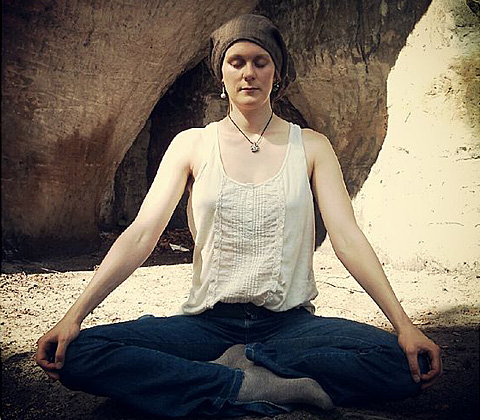Never mind new subways or lower electricity rates. If the Ontario Liberals had wanted to do well in last week’s by-elections, new U of T research suggests they should have been promising meditation classes.
A brief meditation experience can actually shift your political preferences leftward, according to research by Jacob B. Hirsh, a professor at the Rotman School of Management, and colleagues Megan Walberg and Jordan Peterson of psychology.
In an experiment, the researchers had subjects watch a four-minute guided meditation video that encouraged them to feel a deeper connection with the world around them. Both this group and a control group then filled out a survey on their political opinions, as well as a range of personality factors. The meditation group showed significantly more liberal leanings. Because the differences between the groups couldn’t be explained by any other factor than the meditation intervention, Hirsh concluded that meditation had actually made people more liberal.
Hirsh didn’t conduct a follow-up survey, so he doesn’t know how long the effect lasts. “Usually, in social psychology research, these kinds of effects are relatively short term,” he says. “We measured attitudes right after the meditation, but I wouldn’t expect these differences to last longer than an hour or so for what we did. Over time and repeated practice, however, these effects can add up.”
Political attitudes, like religious beliefs, are moral in nature – about what direction you think society should go in. “So there’s an inherent connection between people’s values and how they’re going to go and vote,” says Hirsch.
Meditation is a common spiritual practice that tends to promote values of equality, inclusiveness, and social connection, which typically fall on the left side of the political spectrum. In contrast, religious orientations that prioritize doctrine and adherence to a tradition correlate with a moral outlook that values not just conservative thinking, but also clear boundaries between members of different groups.
Does that mean you could push people toward a more conservative viewpoint by giving them an experience of religious tradition? “It’s certainly possible,” says Hirsh. “We didn’t do that in this study, but there is some evidence that priming a religious orientation, using traditional symbols or words like “church,” leads to some more conservative attitudes.”
Meanwhile, what about the by-elections? Should the liberals have offered meditations? Hirsh laughs. “If they could get people to do it, I’m sure it would help their numbers, but the danger is that the meditators would go over to the NDP.”





